Addition skills Word Problems Worksheets for Ages 8-9
11 filtered results
-
From - To
Enhance your child's understanding of addition with our engaging word problems worksheets designed specifically for ages 8-9! These worksheets provide diverse and relatable scenarios that encourage critical thinking and problem-solving skills while reinforcing addition concepts. Each problem is crafted to challenge and develop young learners' abilities, making math fun and relevant in everyday situations. By practicing with real-life contexts, children will gain confidence in tackling math tasks and improve their analytical thinking. Explore our collection today to help your child master addition skills and foster a love for learning in mathematics! Perfect for school use, homeschooling, or additional practice at home.
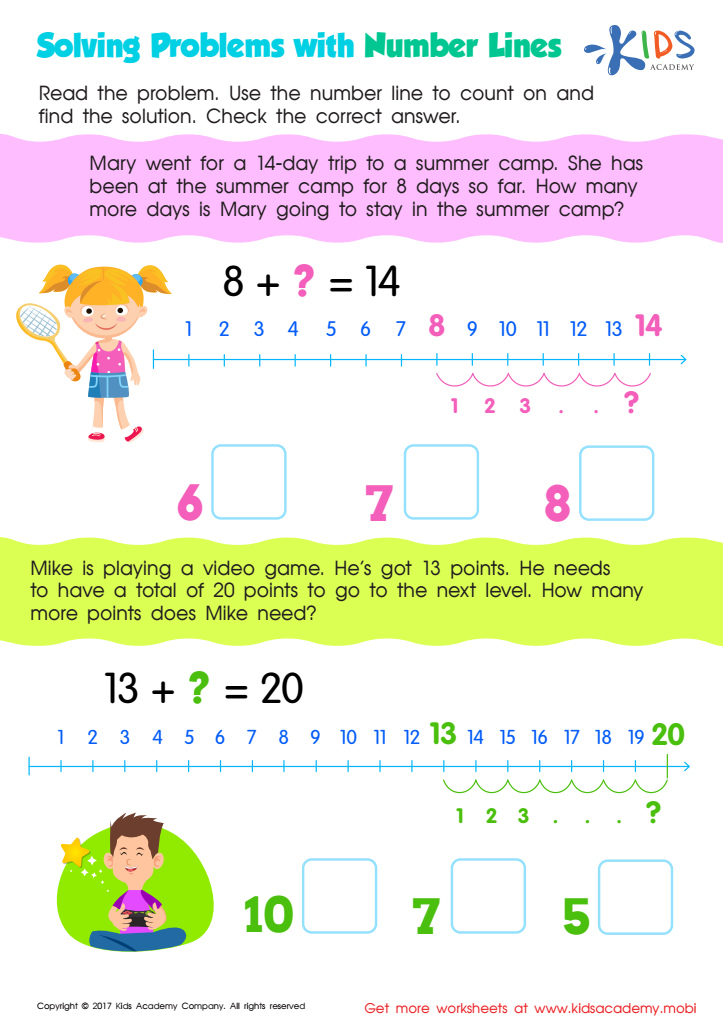

Solving Problems: Number Lines Worksheet
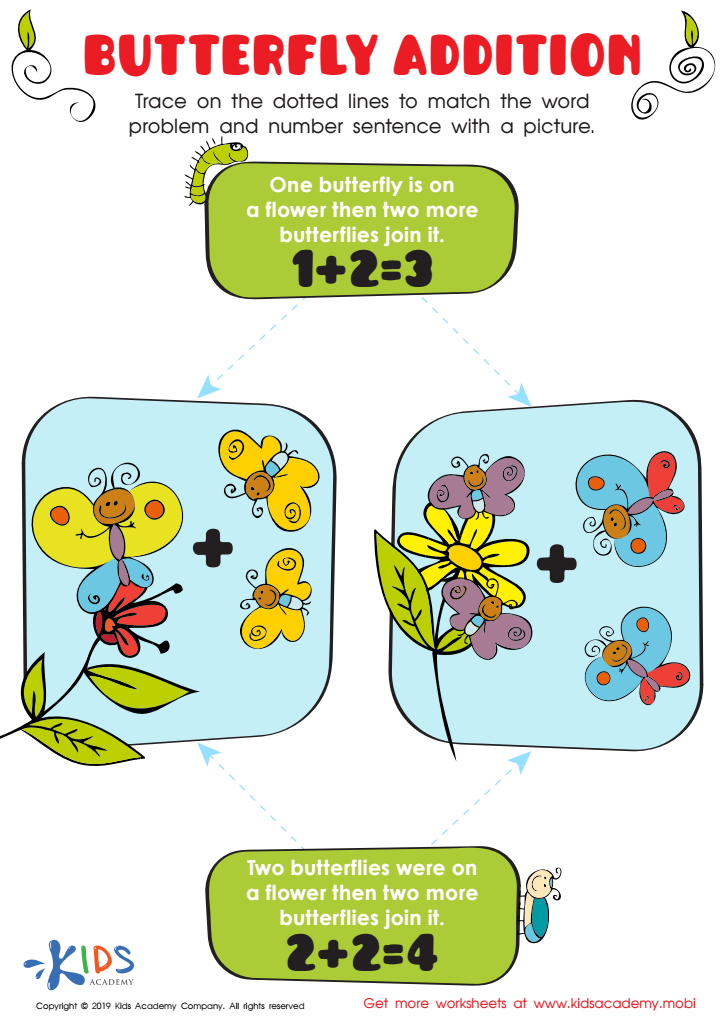

Butterfly Addition Worksheet
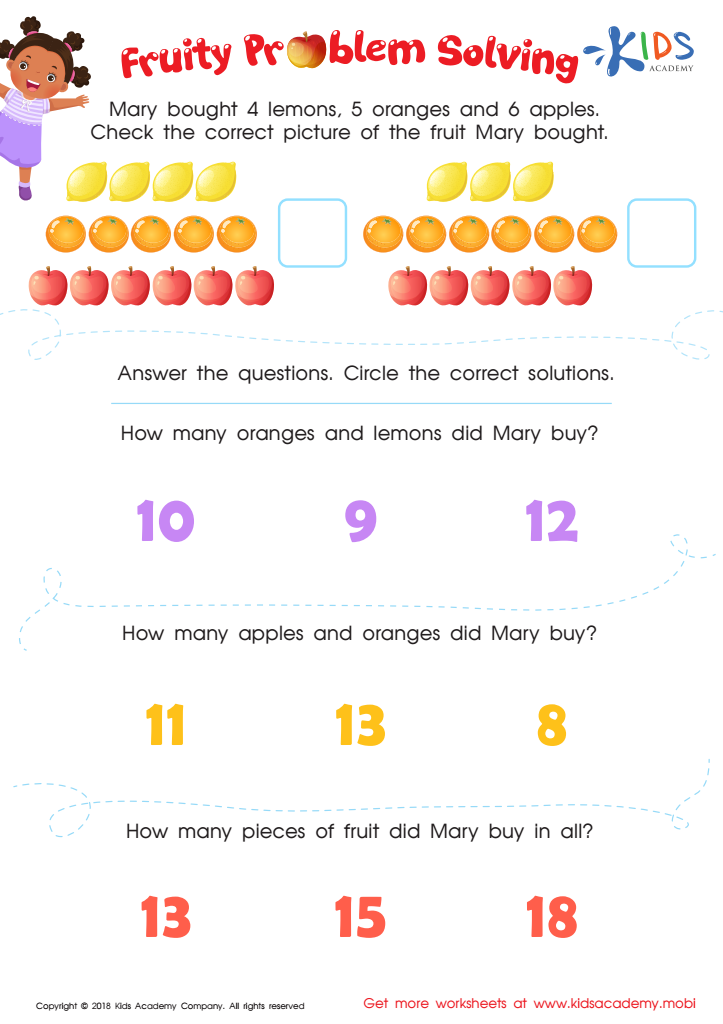

Fruity Problem Solving Worksheet


Adding Flower Petals Worksheet
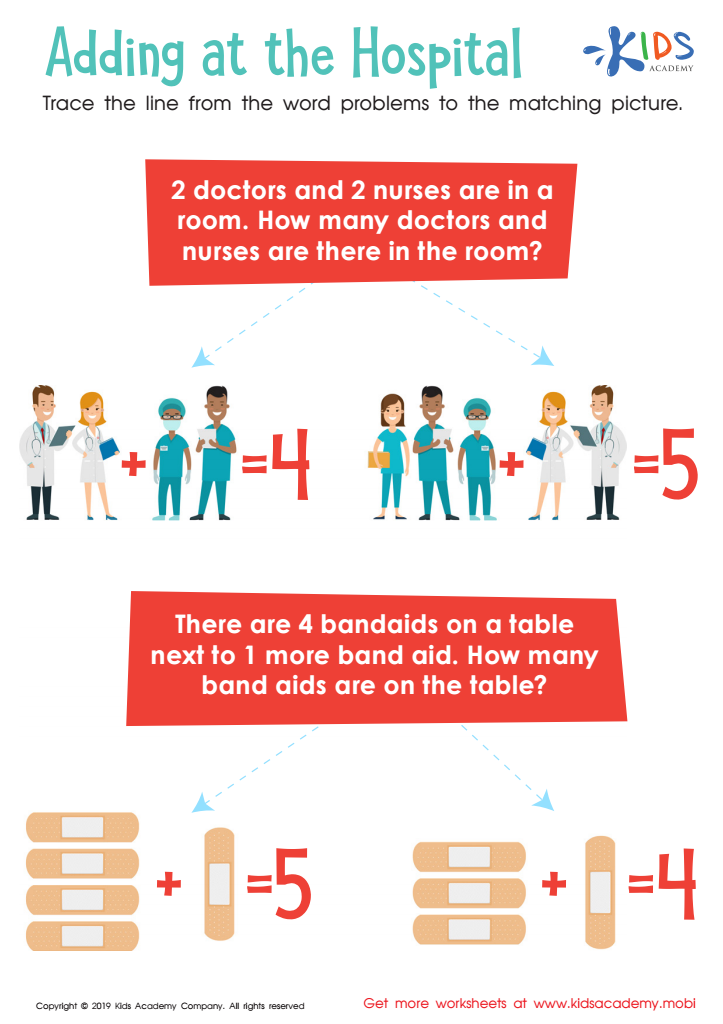

Adding at the Hospital Worksheet
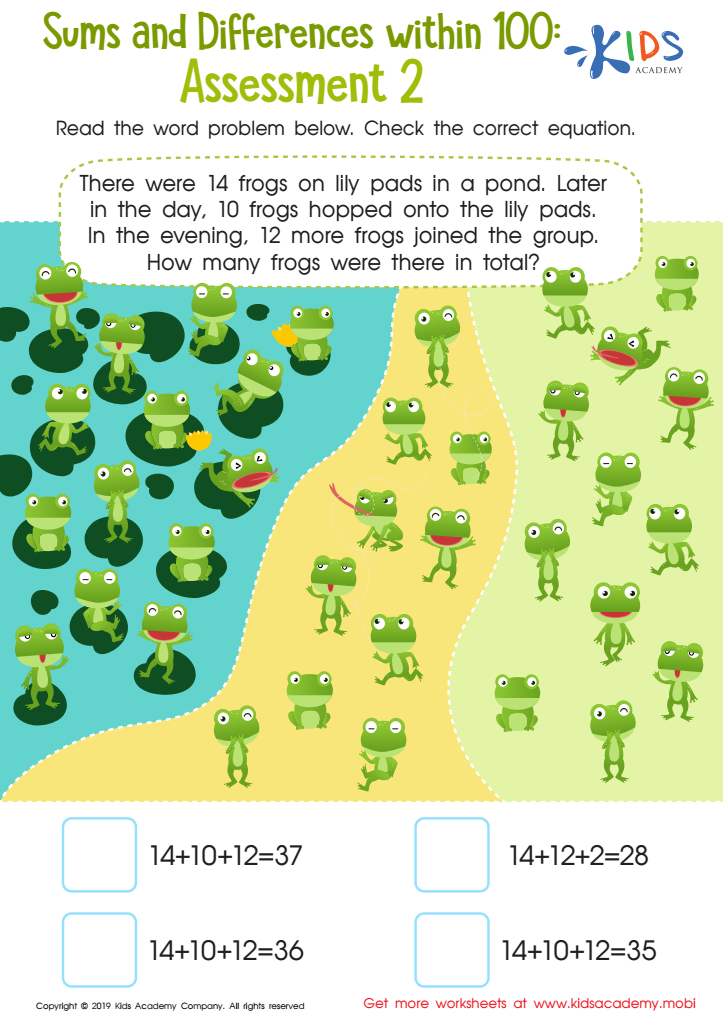

Sums and Differences Within 1 - Assessment 2 Worksheet
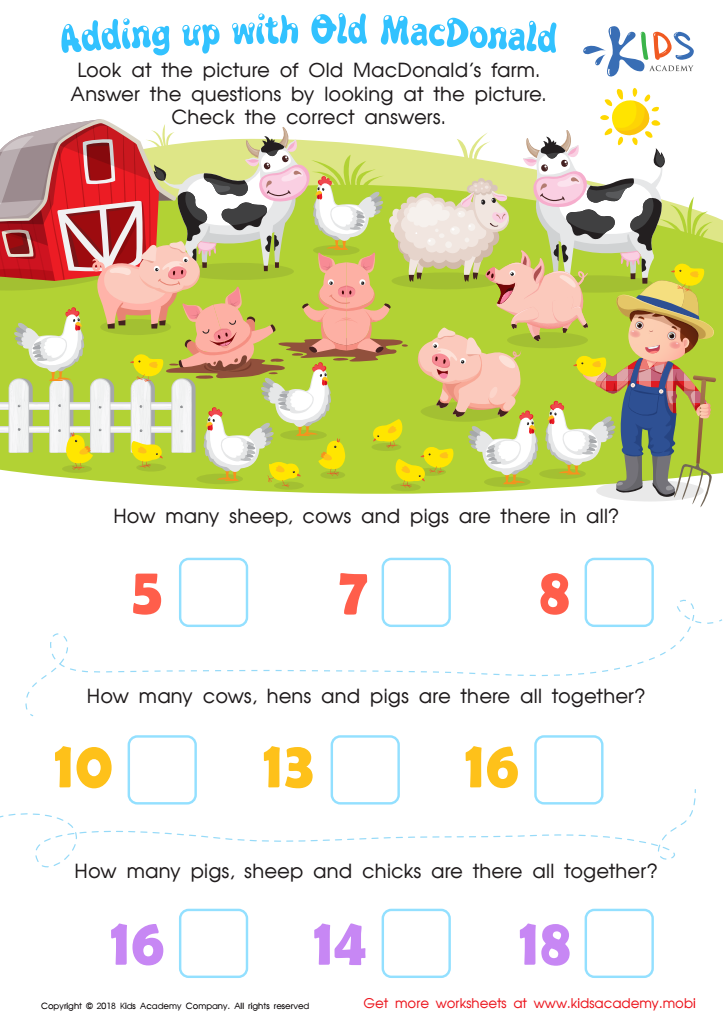

Adding Up with Old MacDonald Worksheet
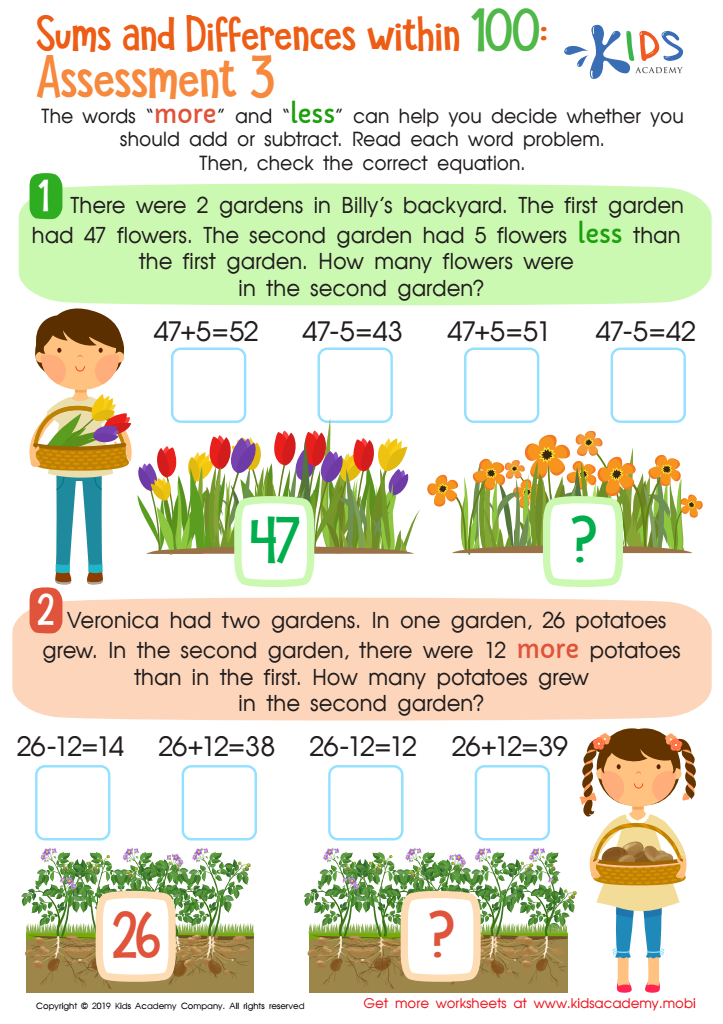

Sums and Differences Within 1 - Assessment 3 Worksheet
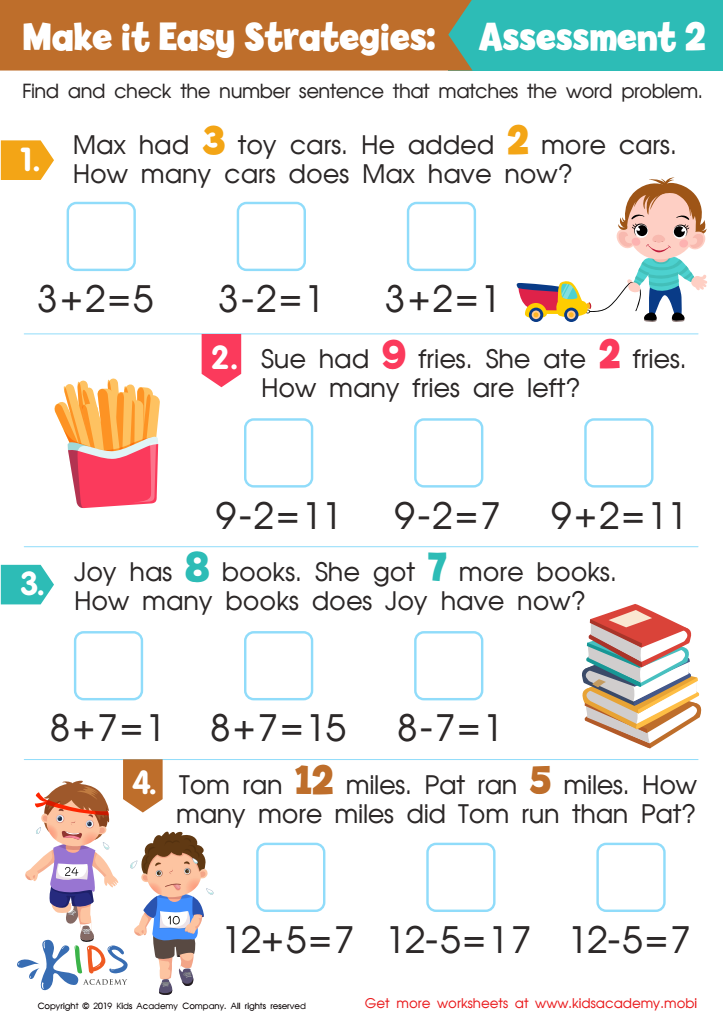

Make it Easy Strategies: Assessment 2 Worksheet
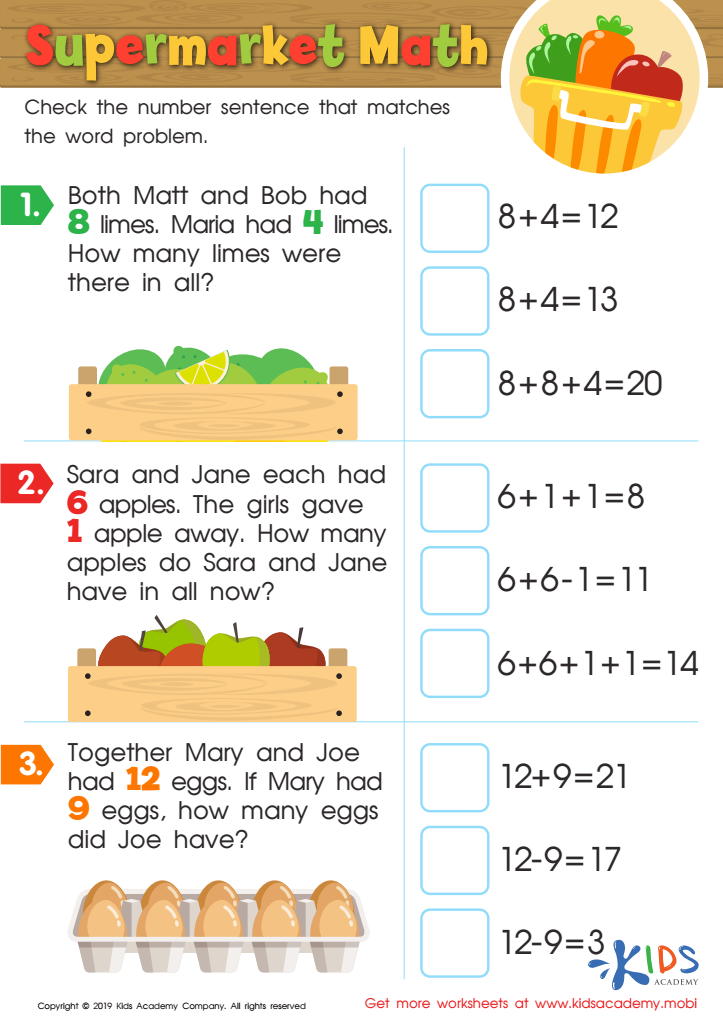

Supermarket Math Worksheet
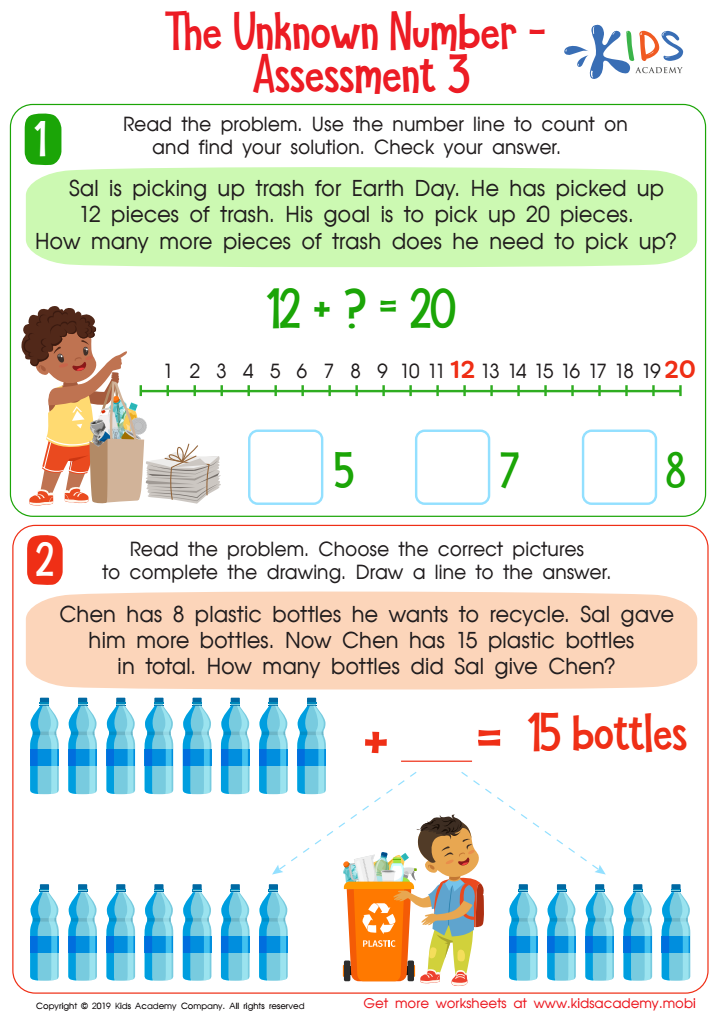

The Unknown Number - Assessment 3 Worksheet
Parents and teachers should prioritize addition skills word problems for children aged 8-9 because this stage is crucial for developing mathematical reasoning and problem-solving abilities. At this age, children begin to transition from building basic arithmetic skills to applying these skills in real-world scenarios. Word problems help students learn to interpret and analyze information, promoting critical thinking and comprehension.
Furthermore, mastering addition word problems enhances fluency in mathematics, making it easier for children to tackle more complex concepts such as subtraction, multiplication, and division in the future. By reinforcing these skills early on, educators and parents support a solid foundation for higher-level math.
Additionally, word problems often involve multi-step calculations that encourage perseverance and resilience, qualities essential for academic success. This form of learning also fosters a sense of confidence as children learn to approach challenges systematically.
Moreover, addition word problems cultivate communication skills, as children learn to express their thought processes. Engaging with this content makes math more relatable and enjoyable, transforming it from a daunting subject into an interactive problem-solving adventure. Therefore, prioritizing these skills is essential for creating confident, capable learners who are well-prepared for future academic challenges.
 Assign to My Students
Assign to My Students





















